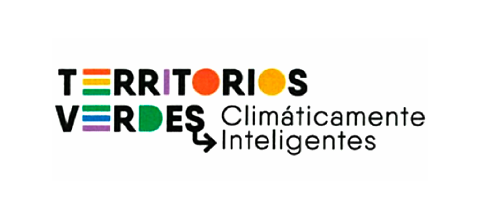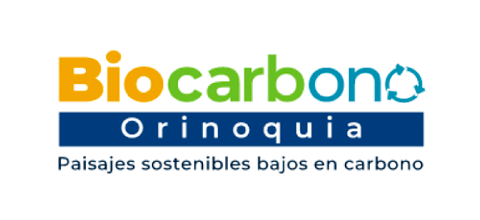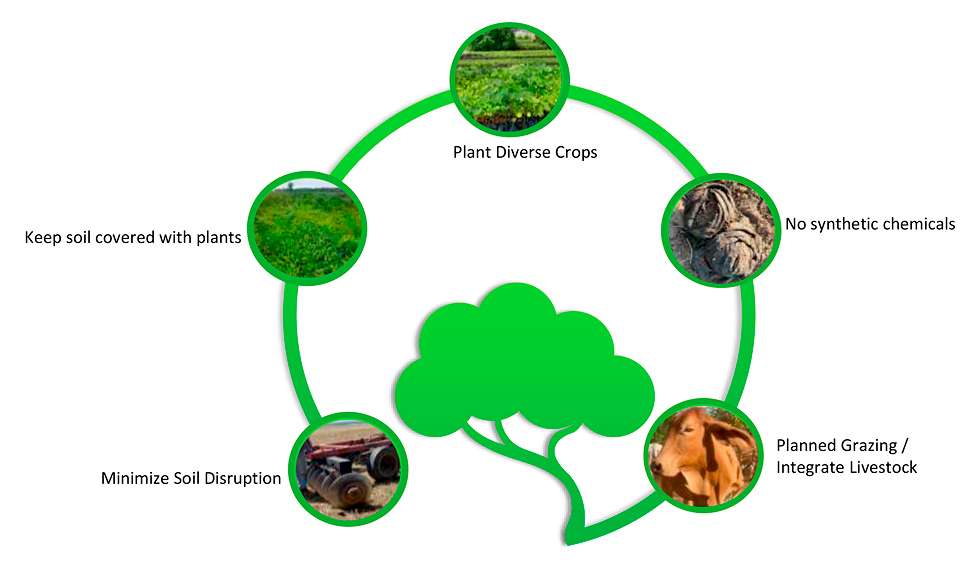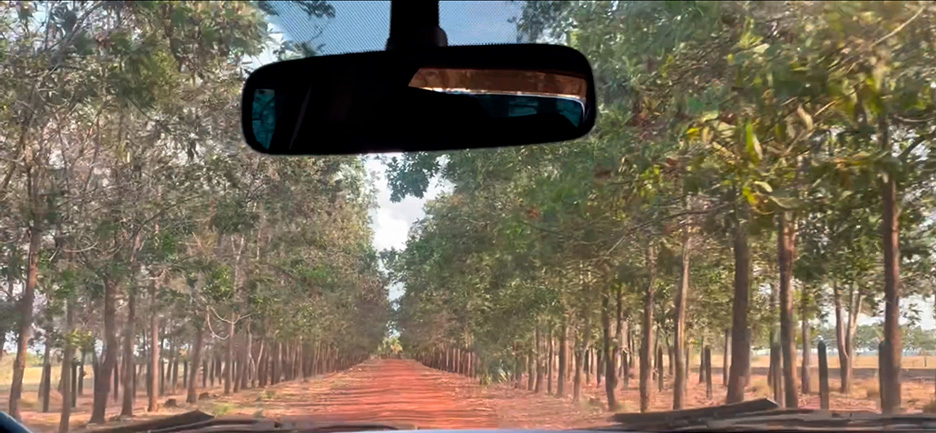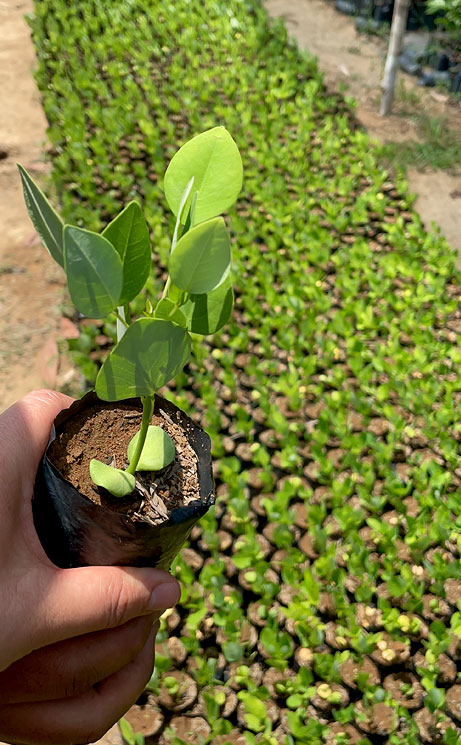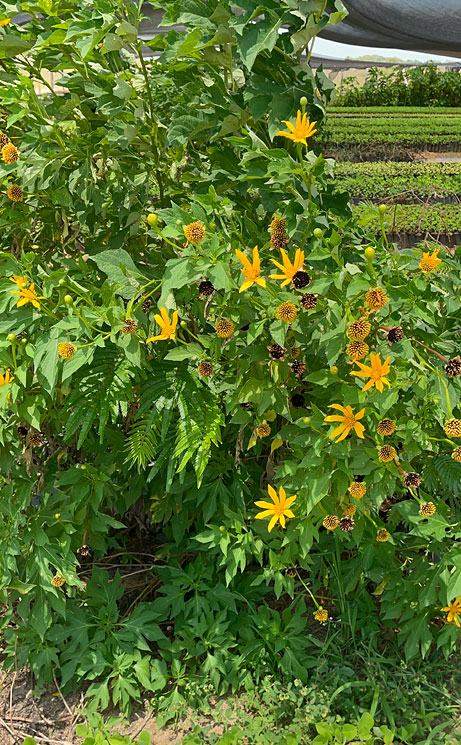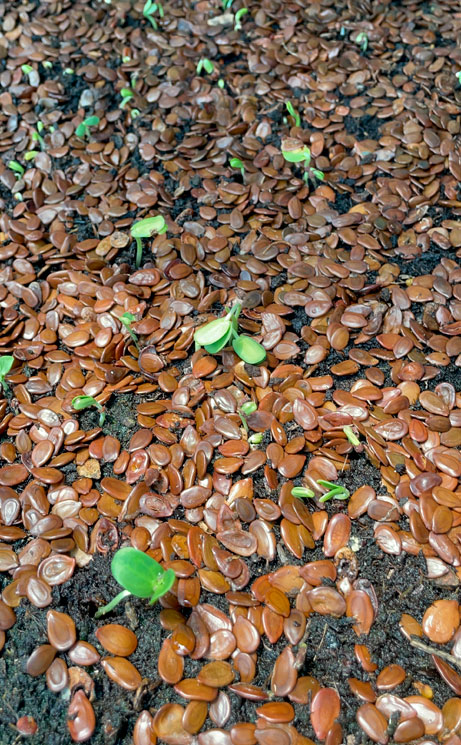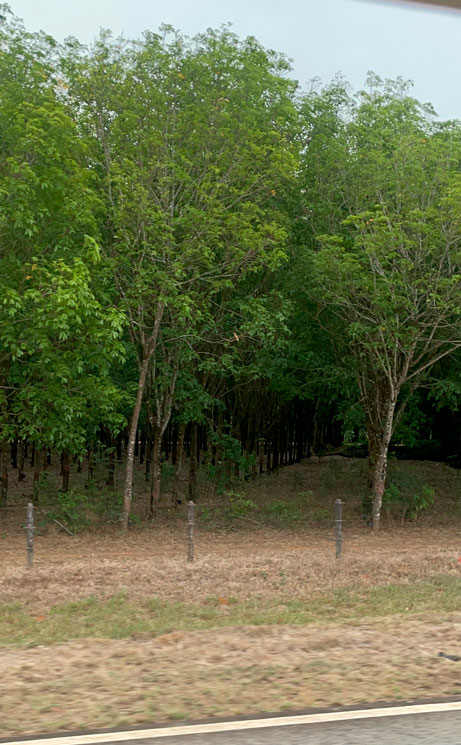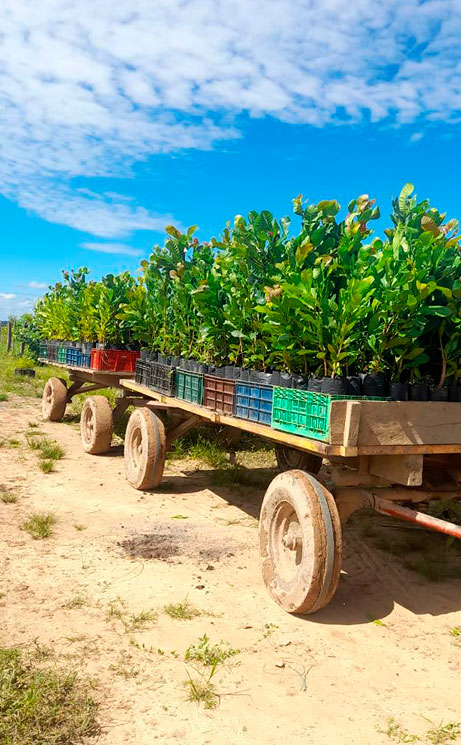Contact Us
Natural Climate Solutions
NCS are proven ways of reducing carbon emissions and storing them in the world's forests, grassland, and wetlands.
Agroindustry
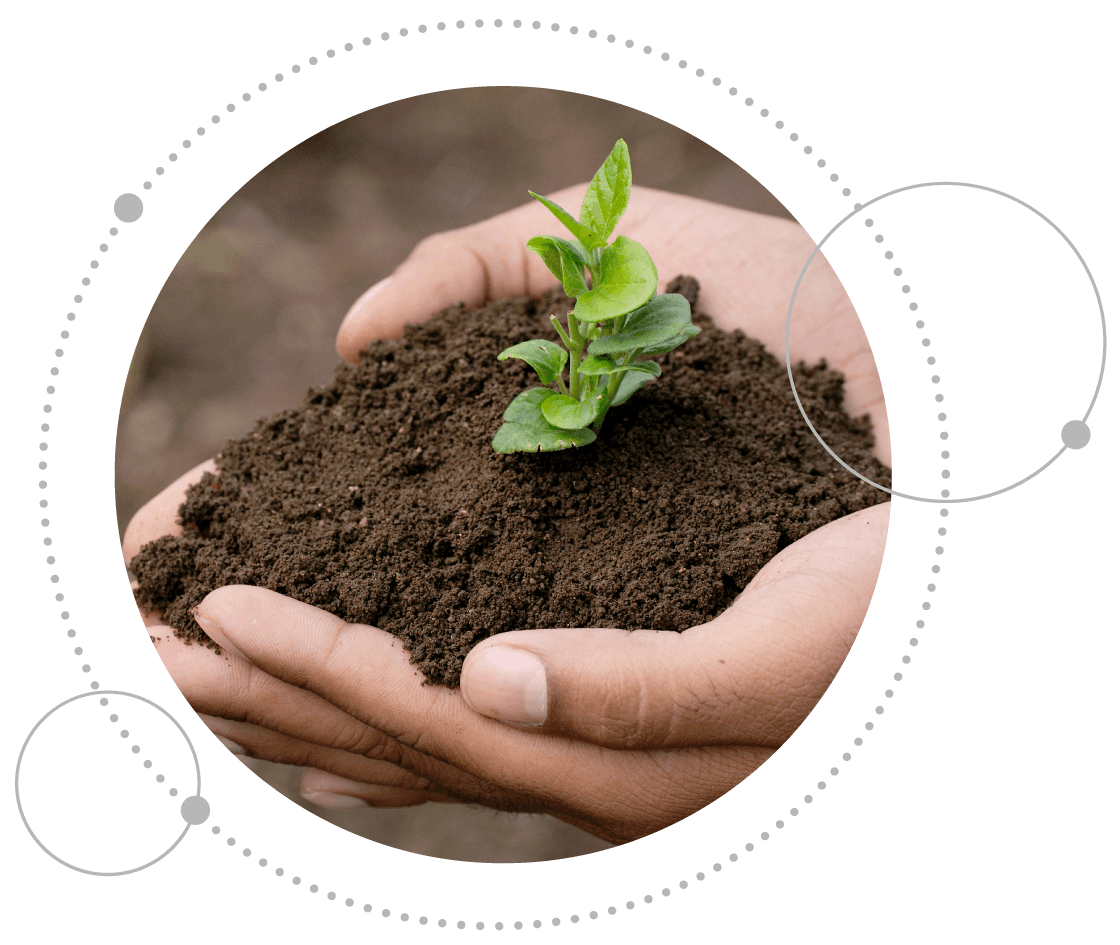
Regenerative Agriculture
Regenerative agriculture is a complete land-management practice that uses the transformation of solar energy (photosynthesis) in green plants to sequester carbon in the soil to help mitigate the effects of climate change while improving soil health, water and air quality, ecosystem biodiversity, and nutrient density.
We, at Inmenso, follow the 5 principles of regenerative agriculture.
We determine the success on these principles by measuring the following goals:
- Healthy soil
- Available biodiverse food for farming communities
- Clean water
- Negative carbon balance
- Livestock well-being
Our team designs, develops and startup high quality Regenerative Cattle Ranching projects. The process includes:
- Hydrologic design of the land using the keyline system for running water management.
- Rational Grazing design using a combination of strategically placed ground rods and electric fencing powered with solar energy to divide the pasture into smaller paddocks.
- Establishment of pastures preceded by soil improvement using the technique of keeping cattle fed on cut grasses in restrictive areas.
- Centralized water distribution system from single water source and grass irrigation.
- Establishment of cutting pastures and protein banks.
Cattle Majada for Soil Regeneration
Majada Mineral Amendment Improvement
Biogas and Biofertilizer from Manure
Livestock waste is a renewable energy source which can produce low-cost energy while also being environmentally beneficial. Biogas is methane gas produced from organic material such as manure in a digester.
The value of Manure in numbers:
- An average cow produces approximately 30 kgs of manure per day.
- A herd of 1,000 cows generate about 10,965 tons of waste per year.
- Processed by anaerobic digestion may produce 3,289,556 m3/year of biogas.
- In energy terms, it is about 16,222 Kilowatt-hour (kWh)/day, or 5,921,100kWh/year.
- Emission of greenhouse gases (GHG) can be reduced by 15,162 tons of CO2eq / year.
- Simultaneously, the biodigester can produce 687 tons of dry bio-fertilizer per year.
failures using the direction with the lowest possible carbon footprint.
Vermiculture
Forestation
"One of our priorities is life on land"
Water
Inmenso
Environmental, Social, Governance (ESG) Achievements
Integrated Modern Energy Solutions, INMENSO LLC, is an international company with expertise in renewable energy.
Our Partners
We grow together with our valuable partners.

